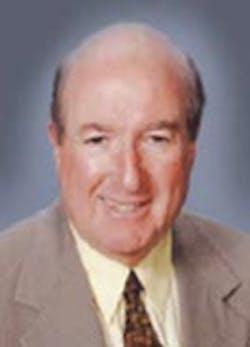We can all agree that President Obama inherited a mess. The economy is now in its 17th month of recession and headed down, not up. Unemployment just passed 8 percent and may be on its way to 10 percent, or worse. The Federal Reserve System and the Congress have pumped trillions of dollars into the banking system, seemingly to no avail because the credit crunch has not eased at all for manufacturing, or for most other sectors.
In the midst of all this turmoil, there doesn’t seem to be anyone home at the Treasury Department. Fifteen of the 17 sub-cabinet posts have yet to be filled. Worse yet, in most cases candidates have not even been named to fill those positions. Members of Congress have noted that the only way to get an answer, or submit an idea, on the economic crisis is literally to get the attention of Treasury Secretary Timothy Geithner.
It is reasonable to ask why this is the case. I believe that the answer lies in President Obama’s desire to be a different kind of President, a President with an administration devoid of the influence of Washington lobbyists and special interests. Unfortunately, this goal has proved to be much more difficult than the President — who truly is a Washington outsider — ever imagined.
In terms of image and confidence that the President has an impartial government that is objectively looking for the ideal solution to the economic problems facing our country, I would argue that President Obama has missed his mark. The root of the problem is found in the conflict between purism and practicality — in Obama’s desire to have non-lobbyists and those untainted by Washington in his administration, versus his need to have experienced talent in the line positions carrying out his policies.
Most people don’t know very much about subcabinet positions. Only a handful could name the 17 individuals who filled the key subcabinet positions at Treasury during the administration of President George W. Bush. Certainly, Americans want reassurance that those picked for these positions by Obama will not be pawns of Wall Street or the big banks. But, they defer to the president with regard to how to accomplish that, and by demanding that candidates for these jobs must not have any connection to lobbying or representing banks or securities firms, Obama has eliminated many talented candidates (and likely made the vetting process even longer than it previously had been)
Meanwhile, on the critical economic positions in his administration — and those with the most public visibility — the president has hired people who raise suspicions among the general public. Secretary Geithner, as the head of the New York Federal Reserve Bank, was in the middle of the negotiations with the banks and securities firms that now are so widely criticized and denounced as “sweetheart” deals. Robert Rubin, the president’s senior economic advisor, was for a time the CEO of Citibank, and on the board of directors at Citibank for many years (not to speak of his earlier affiliation with the investment bank Goldman Sachs). Lawrence Summers, the chairman of the National Economic Council, made $5.7 million in the last two years as a part-time advisor and representative of a hedge fund.
Thus, while the President attempts to make the middle-level of his administration appear to be as pure as the driven snow, the most visible part of his financial policy team leave him open to accusations of bias toward Wall Street and the big banks, not to speak of outright favoritism.
It is still early in the Obama Administration (although time is a precious commodity.) I hope the President will recognize the need for action and suspend or abandon his initial rules for appointed officials. He needs to appoint capable people who can work with Congress and, more important, carry out his financial plans to restore the flow of credit in order to get the economy running again.
As things stand, we have the worst of two worlds: deep suspicions about the objectivity and impartiality of the president’s top economic advisors, but no individuals and personnel in critical administrative posts under their command to carry out the president’s policies, to get the financial markets humming again.
You can help revitalize U.S. manufacturing! Send this page to your Congressman, local and state government leaders, or your local newspaper editor. Add your own comments on the importance of manufacturing innovation to the health of our economy. Your comments are also welcome at [email protected]
